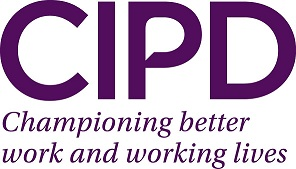
Royal Liverpool Philharmonic is a music organisation based in Liverpool, England, that manages a professional symphony orchestra, a concert venue, and extensive programmes of learning through music. Its orchestra, the Royal Liverpool Philharmonic Orchestra, is the UK's oldest continuing professional symphony orchestra. In addition to the orchestra, the organisation administers the Royal Liverpool Philharmonic Choir, the Liverpool Philharmonic Youth Company and other choirs and ensembles. It is involved in educational and community projects in Liverpool and its surrounding region. It is based in the Liverpool Philharmonic Hall, an Art Deco concert hall built in the late 1930s.

The Royal College of Music (RCM) is a conservatoire established by royal charter in 1882, located in South Kensington, London, UK. It offers training from the undergraduate to the doctoral level in all aspects of Western Music including performance, composition, conducting, music theory and history, and has trained some of the most important figures in international music life. The RCM also conducts research in performance practice and performance science.

The American Federation of Musicians of the United States and Canada (AFM/AFofM) is a 501(c)(5) labor union representing professional instrumental musicians in the United States and Canada. The AFM, which has its headquarters in New York City, is led by president Tino Gagliardi. Founded in Cincinnati in 1896 as the successor to the National League of Musicians, the AFM is the largest organization in the world to represent professional musicians. It negotiates fair agreements, protects ownership of recorded music, secures benefits such as healthcare and pension, and lobbies legislators. In the US, it is known as the American Federation of Musicians (AFM), and in Canada, it is known as the Canadian Federation of Musicians/Fédération Canadienne des Musiciens (CFM/FCM).

The Chartered Management Institute (CMI) is a professional institution for management based in the United Kingdom. It was founded as the British Institute of Management (BIM) in 1947 or 1948, merged with the Institution of Industrial Managers (IIM) in 1992 to form the Institute of Management (IM), and gained a royal charter, and its present name, in 2002.

The Institution of Civil Engineers (ICE) is an independent professional association for civil engineers and a charitable body in the United Kingdom. Based in London, ICE has over 92,000 members, of whom three-quarters are located in the UK, while the rest are located in more than 150 other countries. The ICE aims to support the civil engineering profession by offering professional qualification, promoting education, maintaining professional ethics, and liaising with industry, academia and government. Under its commercial arm, it delivers training, recruitment, publishing and contract services. As a professional body, ICE aims to support and promote professional learning, managing professional ethics and safeguarding the status of engineers, and representing the interests of the profession in dealings with government, etc. It sets standards for membership of the body; works with industry and academia to progress engineering standards and advises on education and training curricula.

Arts Council England is an arm's length non-departmental public body of the Department for Culture, Media and Sport. It is also a registered charity. It was formed in 1994 when the Arts Council of Great Britain was divided into three separate bodies for England, Scotland and Wales. The arts funding system in England underwent considerable reorganisation in 2002 when all of the regional arts boards were subsumed into Arts Council England and became regional offices of the national organisation.

The British Computer Society (BCS), branded BCS, The Chartered Institute for IT, since 2009, is a professional body and a learned society that represents those working in information technology (IT), computing, software engineering and computer science, both in the United Kingdom and internationally. Founded in 1957, BCS has played an important role in educating and nurturing IT professionals, computer scientists, software engineers, computer engineers, upholding the profession, accrediting chartered IT professional status, and creating a global community active in promoting and furthering the field and practice of computing.

The Institute of Mathematics and its Applications (IMA) is the UK's chartered professional body for mathematicians and one of the UK's learned societies for mathematics.

The Chartered Institute of Management Accountants (CIMA) is the global professional management accounting body based in the UK. CIMA offers training and qualification in management accountancy and related subjects. It is focused on accountants working in industry and provides ongoing support and training for members.

The Institute of Chartered Accountants in England and Wales (ICAEW) is a professional membership organisation that promotes, develops and supports chartered accountants and students around the world. As of December 2023, it has over 208,000 members and students in 146 countries. ICAEW was established by royal charter in 1880.
The Musicians' Union (MU) is an organisation which represents over 30,000 musicians working in all sectors of the British music business.

The Adelaide Symphony Orchestra (ASO) is a South Australian orchestra based in Adelaide, established in 1936. The orchestra's primary performance venue is the Adelaide Town Hall, but the ASO also performs in other venues. It provides the orchestral support for all productions of the State Opera of South Australia and all Adelaide performances of the Australian Ballet. It also features regularly at the Adelaide Festival, and has performed at the Adelaide Cabaret Festival, WOMAdelaide and several other festivals in Adelaide.

The Media, Entertainment & Arts Alliance (MEAA), also sometimes referred to as the Alliance, is the Australian trade union and professional organisation which covers the media, entertainment, sports and arts industries.

The Independent Society of Musicians (ISM) is the UK and Ireland's professional body for musicians representing over 11,000 individuals across all areas of the music industry. The ISM is also a subject association for music education and is an independent non profit-making organisation.

Lithuanian National Philharmonic Society also known by its abbreviation LNPS, is a national cultural institution and the largest and oldest state-owned concert organisation in Lithuania headquartered in the nations capital of Vilnius. The philharmonic specialises in a diverse range of music types including jazz, contemporary and classical, organising regular tours throughout Lithuania and Europe.

The Chartered Institute of Personnel and Development (CIPD) is an association for human resource management professionals. Its headquarters are in Wimbledon, London, England. The organisation was founded in 1913—it is the world's oldest association in its field and has over 160,000 members internationally working across private, public and voluntary sectors. Peter Cheese was announced in June 2012 as CIPD's new CEO from July 2012.
The Chartered Institute of Architectural Technologists (CIAT) is the qualifying body for architectural technology, primarily in the United Kingdom but also internationally. The institute has members in overseas centres such as Hong Kong and the Republic of Ireland. 'Chartered Architectural Technologist' is a protected title listed in the European Directive 2005/36/EC. Chartered Members of the Institute may use the designation MCIAT and the title of Chartered Architectural Technologist. CIAT is a member of AEEBC (Association d'Experts Européennes du Bâtiment et de la Construction).
The Council for Dance, Drama and Musical Theatre (CDMT), formerly known as the Council for Dance Education and Training (CDET), is the quality assurance and membership body for the professional dance, drama and musical theatre industries in the United Kingdom. CDMT was founded in 1979.

Making Music is a UK membership organisation for leisure-time music groups of all musical genres, representing over 200,000 musicians and promoters of all levels and experience. Making Music provides them with practical services, guidance, artistic development opportunities and a collective voice for advocacy.
New Music USA is a new music organization formed by the merging of the American Music Center with Meet The Composer on November 8, 2011. The new organization retains the granting programs of the two former organizations as well as two media programs originally created at the American Music Center: NewMusicBox and Counterstream Radio.















